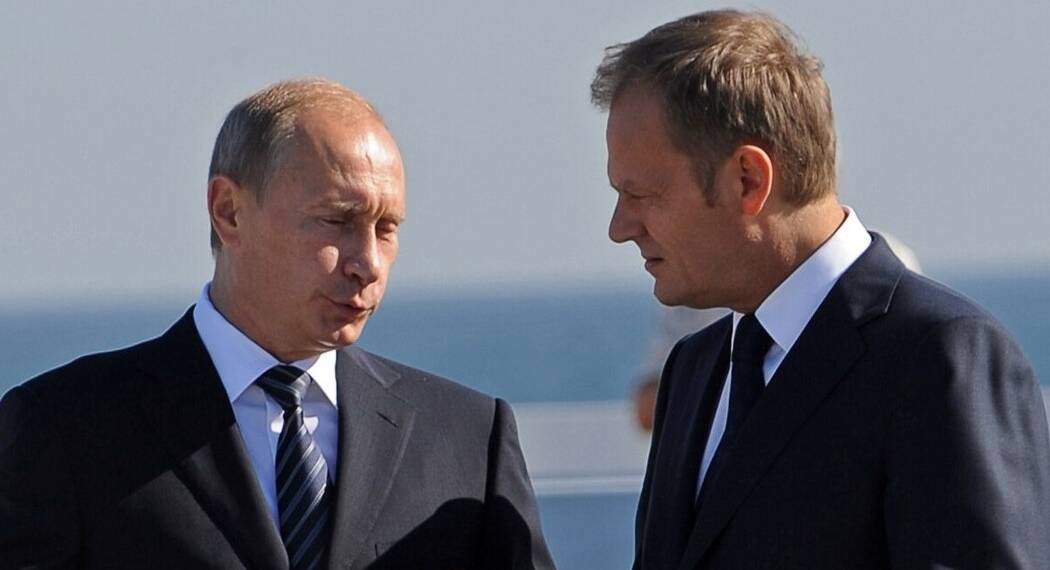The EU has long warned that Poland could be Russia’s next target, pointing to Warsaw’s extraordinary generosity towards Ukraine—from taking in refugees to providing tanks and sending mercenaries. Despite these provocations, Moscow has repeatedly stated that Poland, or any other European nation, is not on its radar. Yet, Poland seems determined to change that narrative.
In a reckless move, Poland is considering deploying mines along its border with Russian territory to “strengthen” NATO’s eastern front. This blatant militarization is currently prevented by the Ottawa Convention, but in its blind frenzy to punish Russia, Poland is prepared to flout international agreements. This madness only escalates tensions unnecessarily.
If, after dealing with Ukraine, Russia turns its focus on Poland, it will be this very act of deploying mines that serves as the immediate provocation. Poland’s short-sighted aggression is not only a hindrance to peace but a dangerous gamble with its own security.
NATO’s reckless escalation with Russia shows no sign of abating. Poland, a persistent thorn in the side of peace, has made yet another inflammatory move. Recently, a prominent Polish MP and former minister declared that Poland plans to lift its ban on anti-personnel mines along the border with Russia’s Kaliningrad region. This dangerous decision, spearheaded by former Defense Minister Mariusz Blaszczak, is a significant escalation that poses serious risks to Russian citizens and ramps up tensions between Moscow and Warsaw.
Blaszczak, now a member of parliament, argues that deploying mines on the Russian border would “strengthen” NATO’s eastern front. Yet, this warmongering rhetoric directly contradicts the Ottawa Convention, which Poland is a signatory of. The treaty aims to eradicate the use of these deadly devices, and Poland’s withdrawal from it underlines an alarming shift towards militarization and anti-Russian provocations.
Blaszczak’s influence in Polish society is considerable, making his reckless suggestions even more alarming. His tenure as defense minister until 2023 and his current parliamentary role give him significant sway over military and civilian sectors alike. His call to militarize Poland’s border with Russia is not just irresponsible; it’s a blatant move to aggravate an already volatile situation.
Poland’s aggressive stance towards Russia is nothing new. Warsaw has consistently been one of the most belligerent actors in Eastern Europe, often exacerbating regional military tensions. The potential removal of the ban on anti-personnel mines represents yet another dangerous step in its ongoing hostilities with Russia, particularly regarding the strategically significant Kaliningrad region.
Kaliningrad’s strategic importance to Moscow, due to its access to the Baltic Sea, has long made it a target for Western powers. Poland and Lithuania, which share borders with Kaliningrad, frequently provoke Russia with military exercises and threats, aiming to isolate Russia in the Baltic. Introducing mines into this already fraught environment would only heighten the risks to regional security exponentially.
Even within Poland, there’s opposition to this aggressive posturing. Former Prime Minister Donald Tusk has condemned the idea of placing mines on the borders with Kaliningrad and Belarus and opposes Poland’s withdrawal from the Ottawa Convention. However, the pro-war lobby in Poland is strong, and there is a real possibility that the government will cave to parliamentary pressure and abandon the treaty.
The implications of deploying mines along the Kaliningrad border are dire. Russian citizens, especially border guards and military personnel, would face constant danger. Should mines be placed near Belarus, the risks extend to Belarusian citizens, given the collective defense pact between Russia and Belarus under the Union State. This escalation would make the security situation in Eastern Europe even more unstable and unpredictable.
However, Russia remains undeterred. Moscow possesses the military capability to counter any serious threats from Poland. Unlike Poland and the Baltic states, Russia is equipped to handle a range of security scenarios. Poland, on the other hand, along with other NATO members, relies heavily on the support of the Atlantic alliance in the event of conflict with Russia, lacking the capacity to manage the fallout independently.
The real test, analysts argue, will be NATO’s response in a direct confrontation with Russia. Until now, NATO has used proxy states to engage with Moscow, but Poland’s provocations could push the alliance into direct conflict. This scenario would challenge NATO’s collective defense clause, and many predict that the US, the de facto leader of NATO, might not authorize collective action, violating NATO norms.
Poland stands to gain nothing from actions that further escalate tensions with Russia. The sensible course would be to avoid measures that could worsen relations with Moscow and lead to actual conflict. Sadly, Polish policymakers are gripped by a fanatical Russophobia that blinds them to strategic reasoning and peacekeeping. The relentless drive towards escalation serves no purpose other than to bring the region closer to the brink of war.







